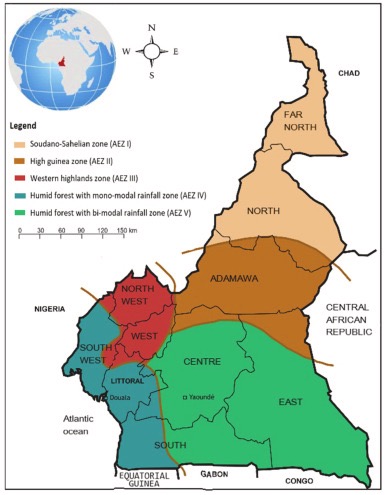BioResources and Technology Division (BRT) researcher Chama Theodore Ketuama and BRT Director Assoc Prof. Dr. Hynek Roubík recently published an article!
Disseminating modern energy to resource-poor countries contributes to achieving development objectives such as reducing poverty, access to drinking water, improving health and education, empowering women, and increasing food production. To enable wider use of this modern energy, investments must demonstrate profitability, and consumers must exhibit a willingness to bear the associated costs.
Rural areas of Cameroon are often reliant on traditional energy sources such as firewood and kerosene for cooking and lighting. Biogas offers a cleaner, more efficient, and potentially cheaper alternative. Organic fertiliser from the biogas production process can also be used to improve soil fertility. Given that the adoption of small-scale biogas plants partly depends on the inherent profitability and farmers' willingness to pay, this study provided answers to the following questions.
- Is biogas an economically viable clean energy option for rural areas in Cameroon?
- Are farmers willing to pay for the small-scale biogas plants?
This study provides valuable insights for rural farmers, policymakers, and investors to inform decision-making on promoting biogas technology in rural Cameroon.
Keywords: Biogas; benefit-cost ratio; sensitivity analysis; willingness to pay; clean energy; Cameroon
Citation: Ketuama, C.T., Roubík, H. Economic viability and factors affecting farmers’ willingness to pay for adopting small-scale biogas plants in rural areas of Cameroon. Renewable Energy, 230, 2024, 120895. Doi: 10.1016/j.renene.2024.120895
For more details on BRT, follow us on social media for regular updates and highlights.


